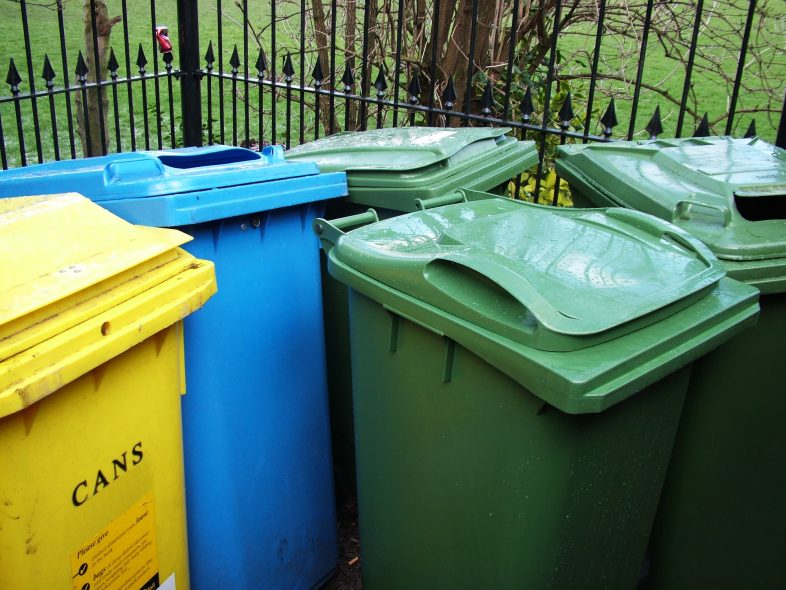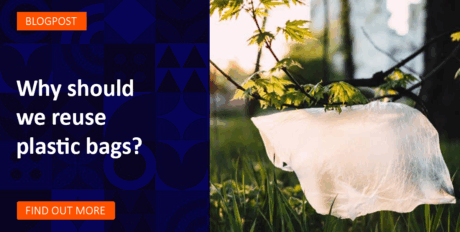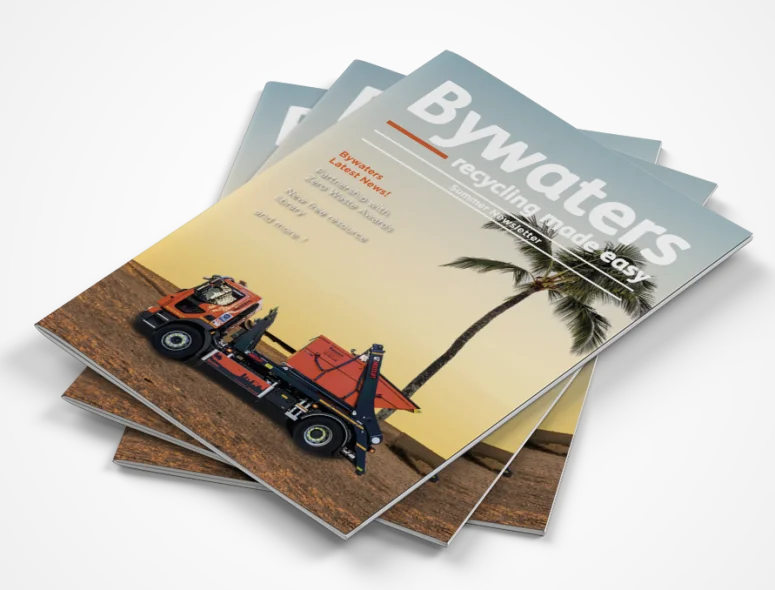Contact us today for your Free Quote
As we settle into 2025, it is important to note that there’s going to be some major reforms in England’s recycling, which will affect households, businesses and waste collectors. DEFRA unveiled major plans to reform England’s waste system at the end of October 2023, under the initiative called ‘Simpler Recycling’.
With new reports about procurement and council confidence emerging, alongside support campaigns from related bodies, we thought it would be important to go through these reforms and their implications for everyone involved.
In this article, we will dive into the specifics of Simpler Recycling, the key changes and deadlines, as well as how it will impact organisations and businesses alike.

Simpler Recycling: DEFRA’s New Reforms
The new Simpler Recycling rules are designed to boost recycling rates in England, as well as to standardise the country’s waste collection services. Ultimately, this is intended to eliminate frequent confusion regarding whether local authorities accept certain items.
In the following section, we will further break down the reforms’ key objectives.
The New Recycling Rules
DEFRA’s new recycling regulations aim to:
- Standardise collections: Businesses and non-domestic premises (such as schools and hospitals in England must collect recyclable waste by March 31, 2025 (with the exception of garden waste). Local authorities in England must collect recyclable waste from all households by March 31, 2026. Local authorities across England will collect the following waste streams: glass, metal, plastic, paper and card, food waste and garden waste (optional waste stream and charges may apply depending on the authority).
- Introduce further food collections: Food waste collections will be available to most UK households through their local authority. By March 31, 2025, businesses in England must have food collection arrangements in place. Meanwhile, local authorities will have until March 31, 2026 to introduce food collections.
- Exemptions for micro-firms: Micro–firms will have until March 31, 2027, to arrange for recycling of core recyclable waste streams, including food waste.
- Recycle plastic film: Plastic film is planned to be collected starting from 2027.
- Reassess general waste removals: Residual (general) waste removals from households will be done at least once every fortnight. To improve waste management, especially in urban centres, the government plans to partner with local authorities to review collection arrangements.
- Review rules for businesses: These comprehensive regulations will be applied to businesses as well. Recycling collections for organisations (excluding garden waste and plastic film), will start from March31, 2025. This will include schools, as well as hospitals. Micro-firms (businesses with less than 10 full-time equivalent employees) will have more time to adapt to these regulations, accommodating the wide-ranging contracts for waste collections.
- Regulate waste tracking: A digital system for waste tracking is planned to be introduced for carriers, operators and brokers. This will tackle waste crime in the country. However, despite being set for implementation for April 2025, the government’s mandatory Digital Waste Tracking (DWT) is likely to be delayed.
The plan won’t be bound by a single deadline as much as being gradually rolled out by local councils. In the next section, we will outline the key deadlines to look out for.
Simpler Recycling: Key Dates and Timeline
Core Recycling for Most Large Businesses

From March 31, 2025, collections for the aforementioned waste streams (glass, metal, plastic, paper and card, and food waste) will commence, most businesses and organisations (excluding micro-businesses with less than 10 employees), as well as schools and hospitals, will need to make provisions to collect these core waste streams (except for garden waste and plastic film).
Paper and Cardboard
The Simpler Recycling legislation also requires businesses to segregate (and have paper and cardboard collected separately). This initiative is aimed at driving a higher level of recycling. Please be aware however, that if you currently have a Dry Mixed Recycling waste stream as part of your service with Bywaters, there will be no legal requirement to separate the paper and cardboard from this waste stream. In other words, you can continue to dispose of paper and cardboard as dry mixed recycling. The reason for this is that this material is taken to our undercover solar-powered MRF facility located in Bromley-by-Bow, where the dry mixed recycling including the paper and cardboard, is sorted.
Food Waste Collections
By March 31, 2025, businesses and non-domestic premises (such as schools and hospitals) must have weekly food waste collections in place. The new legislation makes it clear that food waste items must be collected separately and must not be included in general waste/residual waste or any other waste stream. Micro-firms with fewer than 10 employees are temporarily exempt from certain recycling requirements. They have until March 31, 2027, to arrange for recycling of core recyclable waste streams. Meanwhile, local councils and authorities will have until March 31, 2026 to start providing weekly food waste collections for most households.
If you are a business and your existing waste management service includes a separate service for storing and collecting food waste, then nothing needs to change. If food is currently being disposed in another waste stream, then you will need to make arrangements for this waste stream to be segregated and collected separately.
If you are an existing Bywaters customer, we can provide this service for you, so please contact your account manager or customer services for further details, by email at enquiries@bywaters.co.uk or by phone on 0207 001 6000.
What Simpler Recycling Means for Businesses and Organisations
The new Simpler Recycling legislation will provide a framework for standardising recycling in England, with the objective of improving recycling rates.
Most larger businesses, as well as other organisations such as schools and hospitals, will need to comply with the new rules by implementing recycling practices largely by March 2025. This will involve arranging collections and recycling for the waste streams by licensed waste carriers adhering to this legislation.
To ensure they have the latest information in preparation for these new rules, businesses should utilise the official government website.
Consultations regarding further terms of these regulations are yet to be finalised, meaning that we will be expecting further updates in the future. Having said this, it is crucial for organisations to consult with waste management experts.
On March 13, Bywaters’ Sustainability team will host a webinar and Q&A session for businesses to provide insights on Simpler Recycling, ensuring compliance with legislation like this. It will be a great opportunity to get expert advice for businesses regarding the matter. Click here to save your spot today.
More posts:
Why should we reuse plastic bags?
Unlock the powerful benefits of reusing plastic bags in 2025, a key part of effective plastic bag waste solutions. From significantly reducing environmental impact (including microplastics) to conserving resources, this Bywaters guide provides current insights and practical tips for maximizing the life of your plastic bags.
Read moreBRAD Patch Notes
Discover the latest enhancements to Bywaters’ BRAD dashboard. Get unparalleled insight into waste data, improved performance, and stronger sustainability reporting.
Read more5 Simple Ways To Save On Your Waste Collections
We have put together a guide of 5 simple ways you can save money on your waste collections whilst improving your environmental impact.
Read more




